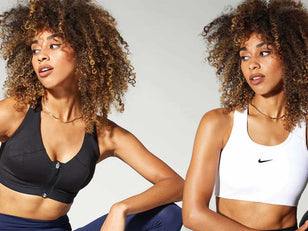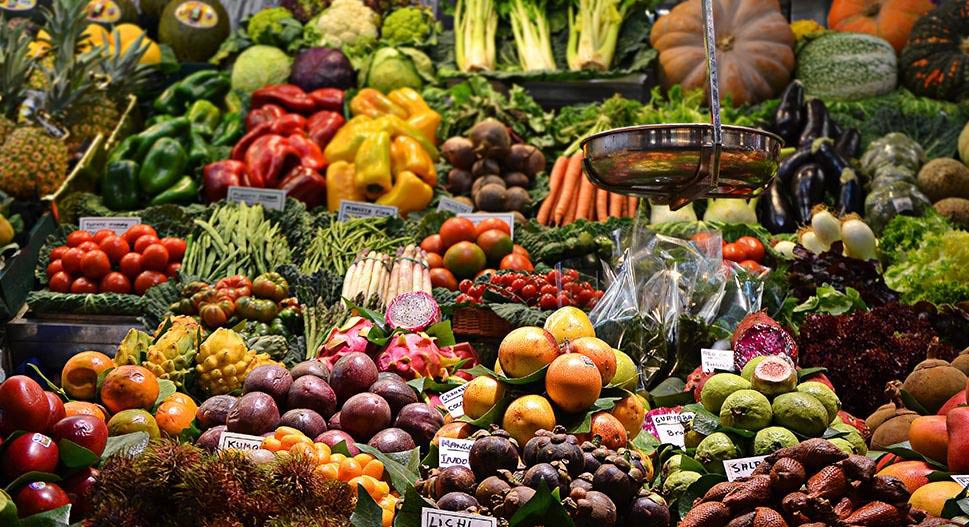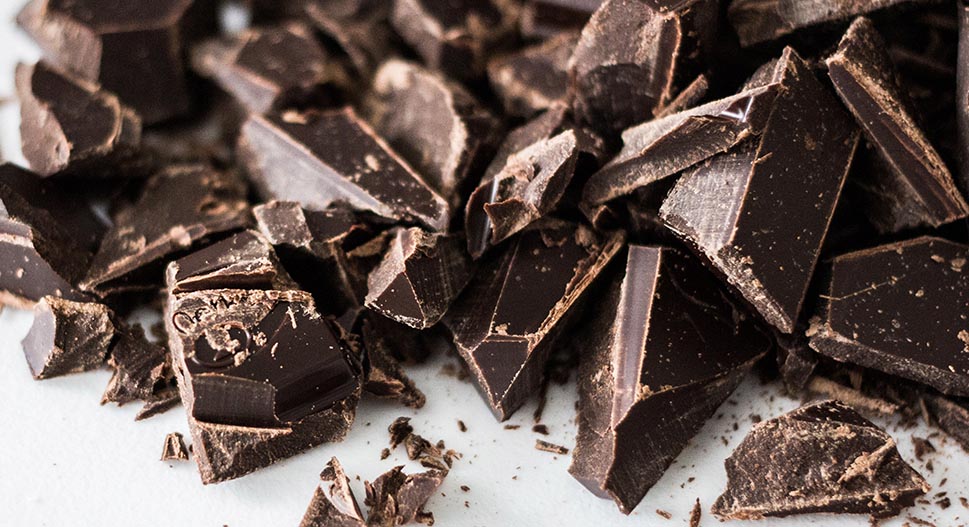
To a carnivore, adopting a vegan diet of no meat, no fish, no dairy and no eggs, sounds like a dramatic step. However, more and more people are turning vegan or dabbling with a 'flexitarian' vegan diet. Why are people making the choice? Should we all be turning towards this growing trend?
WHAT IS VEGANISM?
Veganism is a type of vegetarian diet, where only plant-based foods are eaten.
Vegan diets include:
- Fruit and vegetables
- Breads, cereals and grains
- Legumes (e.g. lentils, chickpeas, dried beans)
- Soy foods like tofu and tempeh
- Nuts and seeds
Vegan diets don’t include:
- Meat, poultry, fish and seafood
- Dairy products
- Eggs
- Honey plus other animal-derived ingredients or food additives
WHY THE TREND?
There have been a few pro-vegan documentaries out there recently, a recent one being a Netflix documentary called “What the Health”. I have to admit that the first time I tried to watch this documentary I had to turn it off after about 5 minutes as the fear-mongering tactics and misinterpretation of science was painful to watch. Good news is that on attempt two I managed to watch it through, albeit my blood boiling, wanting to rip my hair out and shouting at the TV throughout the whole documentary. One of the overarching take home messages from the documentary was that all meat and animal products cause obesity, cancer, diabetes, heart disease and all-cause mortality.
These perceived health benefits of a vegan diet are thought to be largely driving the trend. Advocates of plant-based eating say vegans typically have lower levels of cholesterol and blood pressure, are slimmer and have a reduced risk of mortality from diseases like heart disease and cancer. In addition, environmental and welfare issues are also contributing to the swelling numbers turning away from food sourced from animals.
The research definitely shows that we could have a healthier population if we included more plant based foods in our diets. However, the evidence doesn’t yet say that being vegan is the only way. Diets like the Mediterranean diet which incorporate fish, poultry, some red meat and lots of plant based foods have also been shown to be correlated to reducing the risk of several chronic diseases.
If you’re going after a particularly diet purely to improve your health, what is most important to focus on is the quality of foods, which the Mediterranean diet does well.
NUTRITIONALLY, WHAT DO I NEED TO CONSIDER IF I GO VEGAN?
If you are looking to follow a healthy vegan diet, then it’s very important to keep the following in mind:
KEEP IT VARIED
Vegans get most of their protein from beans, pulses, nuts and seeds. Other foods like grains and vegetables also contain protein in lower amounts.
However it is important to eat a combination of all plant based foods, as the amino acids (building blocks of protein) found in plants are not complete like animal proteins.
STAY TRADITIONAL
If you don’t plan and organise your meals properly, avoiding animal products can lead to a reliance on unhealthy, processed plant protein or refined carbohydrates.
It’s therefore important to keep your diet focused on whole plant foods (like in a traditional diet) rather than rely on processed foods (i.e. veggie burgers, sausages and vegan cheese).
GET ENOUGH B12
B12 is a vitamin that is essential for energy. Vitamin B12 is only found naturally in animal products, so without these, it’s essential to eat foods fortified with vitamin B12 or take a vitamin B12 supplement.
Speak to a registered Dietitian, Nutritionist or your GP to find out more about supplements.
ALWAYS COMBINE IRON-RICH FOODS WITH VITAMIN C
People following a vegan diet can get enough iron through plant foods (i.e. legumes, tofu, nuts and seeds, wholegrains, dried fruits and dark green leafy vegetables). However, the type of iron in plant foods (non-haem iron) is not as easily absorbed as the iron from animal foods (haem iron).
To boost the absorption of iron from plant foods, you must include a vitamin C-rich food with meals. Foods rich in vitamin C include berries, citrus fruit, kiwi fruit, tomatoes or peppers.
FOCUS ON OMEGA 3 FATS
Our body can’t make omega-3 fats itself, so it’s important to get them through food.
The omega-3 fats found in oily fish are in a different form from the omega-3 fats in plant foods. Our bodies can convert some omega-3 fats from plant sources into the more beneficial form of omega-3 found in marine sources, but the conversion rate is low. Plant sources of omega-3 fats include flaxseeds, walnuts, chia seeds, canola oil and seaweed. There are also vegan marine omega-3 fat supplements available.
STAY CONSCIOUS ABOUT CALCIUM INTAKE
As a vegan diet does not include dairy products, it is important to include other calcium-rich foods in your diet. Some good plant sources of calcium are calcium-fortified milk alternatives, hard tofu, almonds, tahini (sesame seed paste) and green leafy vegetables.

TAKE HOME MESSAGE
I am a firm believer that we could do with a lot more plant-based protein and plant-based foods in our diet. When done right, a vegan diet can be super nutritious and can contribute to a healthy lifestyle and healthy environment.
However, pushing everyone down the vegan road is not cool. There are some serious nutrition myths floating around at the moment, so make sure to do your research first or talk to a qualified nutritionist.
In terms of the 'perfect' diet, one size doesn’t and will never fit all. Having spent a couple of months in Italy when I started my PhD, I have first-hand experience that the Mediterranean diet is an incredibly nutritious and inclusive diet. It’s a healthy diet that doesn’t focus on restricting foods that you might really enjoy.
A healthy diet that still carries pleasure – that’s the type of diet that sounds right to me. And if you’re truly happy following a well varied and balanced vegan diet – then go for it!
NEXT UP:
How to be vegan and maintain fitness performance >
References
- Orlich MJ, Singh PN, Sabate J, et al. Vegetarian dietary patterns and mortality in Adventist Health Study 2. JAMA Intern Med. 2013;173(13):1230-1238.
- Becoming Vegan: The Complete Guide to Adopting a Healthy Plant-based Diet by Brenda Davis, RD, and Vesanto Melina, MS, RD
- Venti CA, Johnston CS. Modified food guide pyramid for lactovegetarians and vegans. J Nutr. 2002;132(5):1050-1054.
- Frank M et al. Dietary fats and CVD. Circulation 2017; 136
- Food Facts. Vegetarianism. https://www.bda.uk.com/foodfacts/vegetarianfoodfacts.pdf































































